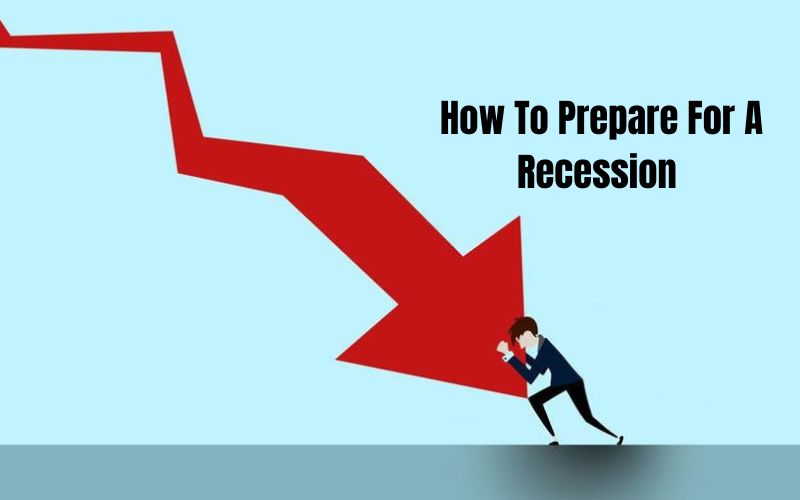How To Prepare For A Recession And What A Recession Is

How To Prepare For A Recession And What A Recession Is
The economy has suffered dramatically in recent years. The pandemic has turned everything upside down, and while things have improved in recent years, there are fears a recession is looming. In this article we will let you know how to prepare for a recession.
Quite a few are speculating about recessions. Reports show that the probability of a recession is now 96%.
Do you worry about the state of the economy and the prospect of a recession? See the advice in the guide below on preparing for a company slump.
Table of Contents
What is a recession?
A recession occurs when a region’s economy collapses for several months or even years. During these periods, the region’s gross domestic product (GDP), or the total value of the goods and services it produces, drops. At the same time, there may be drastic changes in commodity prices such as oil or gas. Industries that were once profitable can suddenly lose value. Consumers may see high inflation or above-average unemployment. As a result, consumer confidence is also affected, meaning people may be less willing to spend than they usually would.
More recently, the COVID-19/coronavirus pandemic has caused significant losses in day-to-day operations and employment across multiple sectors, including hospitality, retail and tourism. As a result, the United States faced a brief recession in the first months of 2020.
What happens in a recession?
In times of recession, companies make fewer sales, and economic growth stagnates or is non-existent. To reduce rising costs, companies may involuntarily lay off large numbers of their employees, leading to widespread unemployment. At the same time, new hiring is slowing, making it harder for newly unemployed workers to find another job.
Retirement and other savings accounts may suffer due to the propensity of investments like stocks and real estate to lose money. Lenders can also respond to heightened financial uncertainty by increasing their borrowing requirements, making it harder for people to qualify for new credit accounts.
Recessions are an inevitable part of any economy. But you can weather the storm by anticipating challenges early and preparing for the future. With that in mind, here are five essential steps to help you plan for uncertain times.
Some Advice for Business Owners on How to Get Ready for a Recession
Cut Costs Today
It’s easy to let business expenses spiral out of control. Countless things make sense now but don’t add much value to your business.
Be sure to review your spending and reduce these purchases regularly. Only authorize the purchase of products and services that make a difference and contribute to your business results.
Focus on quality customers
Knowing who your best customers are is crucial in tough times. You may be unable to count on many orders from less reliable customers. Customers who trust your products will be with you through tough times.
Make sure to improve the quality of your customers as much as possible. Focus on creating the best possible products to make your business invaluable to others. It makes it less likely that your products will end up on the chopping block when people start cutting costs.
Get Your Books Straight
You might not have to worry about your books as much in good times. They make a lot of money, so cash flow management is less critical.
But things will change passionately when you have to balance your books. Hire an accountant today to organize and understand your financial data. This will help you optimize for future issues.
Prepare the financing
Even if there is a recession, chances are there will still be opportunities. These are things that will help you stay ahead of your competition. But if you don’t have the money to take advantage of these opportunities, you won’t be able to move forward.
Funding helps here. It’s wise not to go into debt when things are going well, and you can pay cash. But there may be future opportunities that require more money than you have.
Funding is ideal for these situations. You can expand your business when things slow down and pay off debt when the economy returns to normal.
Also read: Rotating Proxy
Also read: Automotive PPC Advertising





